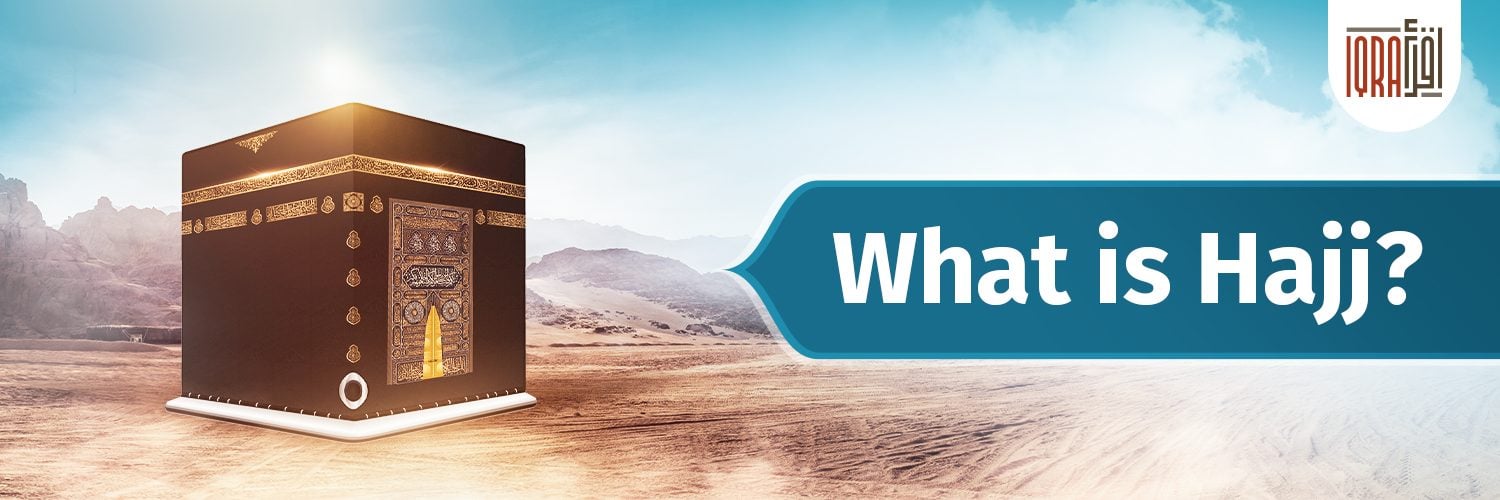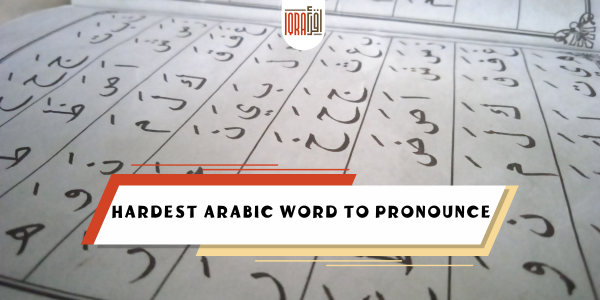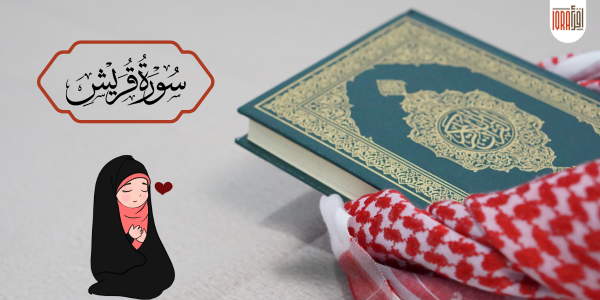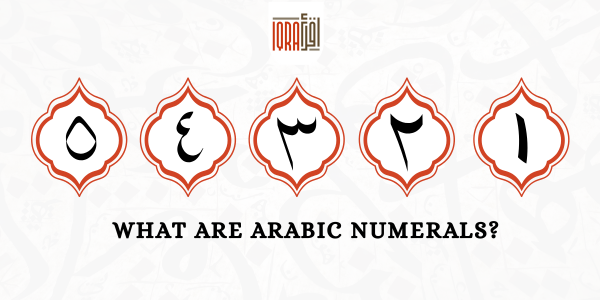The Connection of Dhul Hijjah and Hajj in Islam
Dhul Hijjah is the 12th month in the Islamic Hijri Calendar. It is the last month before the Islamic New Year and holds the most significant event of Hajj. Hajj in Islam is one of the five pillars of faith that every Muslim must perform.
The word Dhul Hijjah literally means the master of or the possessor of pilgrimage. It is broken down like this:
dhu = master ofذو
الحجه = al-Hijja = the pilgrimage
So, the month itself is named after Hajj.
This month is by far one of the holiest months in Islam. This month, we honor Prophet Ibrahim (as) through the Hajj rituals. But even outside of Hajj, Muslims worldwide slaughter an animal as a sacrifice, giving tribute to Prophet Ibrahim (as).
Ibrahim (as) longed for a child for many years and, in his old age, was blessed with a son named Ismail. Allah then tested him by commanding him to sacrifice his son. In complete obedience, Ibrahim (as) and his son Ismail (as) submitted to Allah’s command wholeheartedly. However, Allah did not allow the knife to cut. Instead, he commanded them to sacrifice a ram. The entire Muslim world is reminded of this great test and deed during the month of Dhul Hijjah.
Hajj in Islam
When is the Hajj pilgrimage?
Hajj is based on the lunar calendar and performed in the calendar year’s last month in the Holy City of Mecca in Saudi Arabia. It begins on the 8th day of Dhul Hijjah.
- First day of Hajj: 8th Dhul Hijjah
- Second day: 9th Dhul Hijjah (Arafat)
- Third day: 10th Dhul Hijjah (Eid Al Adha – Sacrifice)
- Fourth day: 11th Dhul Hijjah.
- Fifth day: 12th Dhul Hijjah.
- Last day at Mina: 13th Dhul Hijjah
Among the five pillars of Islam is to perform the Hajj pilgrimage at least once in a lifetime. Some Muslims spend their life trying to save enough money to perform the Hajj pilgrimage. It is a fundamental and compulsory act of worship for those that can afford it. The reward for an accepted Hajj is unmatched!
Abu Hurairah (May Allah be pleased with him) reported:
The Messenger of Allah (peace be upon him) said, “Whoever performs Hajj (pilgrimage) and does not have sexual relations (with his wife), nor commits sin, nor disputes unjustly (during Hajj), then he returns from Hajj as pure and free from sins as on the day on which his mother gave birth to him.”
(Al-Bukhari and Muslim – Riyad as-Salihin 1274)
How many times did the Prophet perform Hajj in Islam?
Many would be surprised to know that the Prophet (peace be upon him) performed Hajj only once.
Though he lived in Mecca for many years after Prophethood, the rulings and teachings of Islam came down slowly. In the 10th year after Hijra, he performed the Hajj pilgrimage known as the “Farewell Pilgrimage” or Hajjat al-Wida. During this pilgrimage, he gave his last sermon in Arafat on the 9th of Dhul Hijjah. He returned to his Lord only three months after he performed Hajj.
Honoring Women that Perform Hajj
Traveling, as we know, can be difficult. However, the Hajj pilgrimage adds extra layers to such difficulties. Roughly 3 million Muslims gather to perform the Hajj pilgrimage, putting them all in the same place at the same time. Recently due to the pandemic, that number has dropped to 1 million, with the hopes of it returning to normal soon.
With Hajj only to be performed once a year, the situation for some women can be difficult. Some may be pregnant, or taking care of young children, and others are dealing with menstruation’s discomfort, making it even more difficult for them. The Prophet (peace be upon him) mentions something extraordinary for women that acknowledges their difficulties during Hajj.
‘Aishah (May Allah be pleased with her) reported:
I said: “O Messenger of Allah! We consider Jihad as the best deed, should we not then go for Jihad?” The Messenger of Allah (peace be upon him) said, “The best Jihad for you women is Hajj Mabrur (i.e., one accepted by Allah).”
(Al-Bukhari – Riyad as-Salihin 1276)
What is Eid Al Adha?
Eid Al Adha is celebrated worldwide on the 10th of Dhul Hijjah. The meaning of Eid Al Adha is the “Feast of Sacrifice.” We are encouraged to fast on the day before Eid (the day of Arafat) and the beginning days of Dhul HIjjah. But after Eid, we are to celebrate for three days and are not allowed to fast. It is a time for Muslims to celebrate with those that performed Hajj and continue to honor Prophet Ibrahim (as) by sacrificing an animal.
What do the people performing Hajj do on Eid al Adha?
For those that are blessed to be performing the Hajj pilgrimage, they too sacrifice an animal. On the 10th of the Dhul Hijjah, the hujjaj (pilgrims) are still completing rites of Hajj. Some of the rites are outlined below:
- Rami (pelting) of Jamarah al-Aqaba (the big pillar).
- Hady (sacrificing an animal) – this is only obligatory (Wajib) for those pilgrims performing Hajj al-Tamattu and Hajj al-Qiran. For those performing Hajj al-Ifrad, Hady is recommended.
- Halq / Taqsir (cutting the hair).
- Tawaf al-Ziyarah.
Rewards in the Month of Dhul HIjjah
The sacred Hajj in Islam is the pinnacle of Dhul Hijjah, but there are many ways to honor the month even at home. For those who do not perform the Hajj pilgrimage, it’s very easy to forget just how beneficial and sacred this month is. With Ramadan, we all spend a month fasting, so it always feels “deserved.” However, Eid Al Adha marks a grand and sacred time for Muslims. As believers, we can benefit from this blessed month even if we are still in the comfort of our homes.
Ibn Abbas reported: The Prophet, peace, and blessings be upon him, said, “No good deeds are better than what is done in these first ten days of Dhul-Hijjah.” Some companions of the Prophet said, “Not even jihad in the way of Allah?” The Prophet said, “Not even jihad in the way of Allah, except for a man who goes out with his life and wealth at risk and he returns with nothing.”
Al-Qasim ibn Abi Ayyub reported: When Sa’id ibn Jubayr, may Allah be pleased with him, reached the first ten days of Dhul-Hijjah, he would exert himself in worship so greatly that he would nearly overwhelm himself. ( Sunan al-Dārimī 1774)
Dhull Hijjah for Muslims is a time to focus on spiritually uplifting ourselves through acts of worship and good deeds. This includes asking people for forgiveness and rectifying any broken relationships with our family. It is a month we fast, sacrifice, refine our character, and celebrate with our deen with our brothers and sisters in Islam.
For a crash course on Hajj in Islam and the different steps involved, signup for our class on the Fiqh of Hajj.





0 Comments
Oops comments are disabled